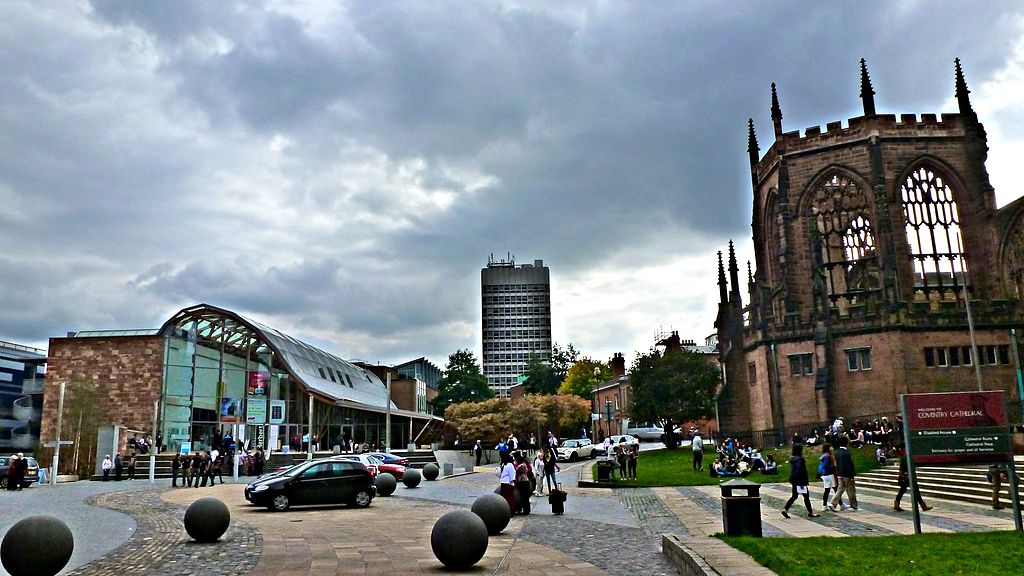 This blog post has been produced to provide insight into the findings of the Birmingham Economic Review.
This blog post has been produced to provide insight into the findings of the Birmingham Economic Review.
The Birmingham Economic Review 2019 is produced by City-REDI, University of Birmingham and the Greater Birmingham Chambers of Commerce, with contributions from the West Midlands Growth Company. It is an in-depth exploration of the economy of England’s second city and is a high-quality resource for organisations seeking to understand Birmingham to inform research, policy or investment decisions.
This post is featured in Chapter Five of the Birmingham Economic Review “Changing Perceptions of Birmingham“.
Coventry City of Culture 2021 and the Commonwealth Games 2022 in Birmingham are the next two mega-events of respectively national and international significance organised in the West Midlands. Although mega-events are considered an effective policy strategy to boost the local economy, their economic impact depends on the ability of city-regions to draw and retain substantial resources from the outside and to attract tourists. In recent years, several empirical studies have shown that the overall balance of some events is not always positive since extra costs and well-known negative externalities like congestion and inflation can outweigh the benefits. Impact evaluation of events – be they cultural, sport or trade – is a complex exercise in relation both to the multi-dimensional nature of the monitored activities and to the objectives of such measurement. A robust methodological approach should be able to isolate the effects on the local economy, controlling for other possible causes and interferences. Furthermore, the effectiveness of the investment compared to the possible alternative use of resources is hardly tested.
Liverpool European Capital of Culture 2008 can be considered a best practice in the field, and the remarkable study ‘Liverpool 2018 – 10 Years On’ has recently provided evidence of the long-term legacy of the event. The lessons learned are threefold. First, there are many relevant dimensions to include in the impact evaluation beyond the strictly economic effects. Second, impacts should be measured in the long-term, after the halo effect generated by the event has vanished. Third, one-size-fits-all formulas fail; the regeneration process should be place-based. In this case, the city has largely benefited from a combination of strong cultural leadership, explicit political and institutional support and, above all, multi-year investments of billions of pounds from various partners, not least the European Structural Funds.

If we look at the physical capital, Birmingham has been undertaking a major plan of infrastructural investments in built environment and transport that has been dramatically improving the quality of public space in the city centre and overall mobility. Nevertheless, to maximise the effect of the forthcoming events, local authorities and their partners should not overlook the importance of different forms of intangible capital investment, including human, social and environmental.
In other words, the more we develop local capabilities for planning, marketing and delivery of the required activities, the stronger the impacts of these events will be. Educational institutions and universities play a pivotal role in providing skills and capacity that could generate innovative solutions to community outreach, digital broadcasting, or environmentally sustainable consumption, just to mention a few examples. Social capital should be assessed in terms of the level of participation and engagement, particularly of minority groups and disadvantaged people. If we really want to reduce the inequality gap and include marginal places, substantial investments must target urban peripheries as well.
I believe that Coventry Capital of Culture and the Commonwealth Games are not only about increasing tourism. Their major contribution will be putting the two cities back on the UK mental map in terms of image and reputation. Some may call it “city-branding”, but there is far more than city marketing: the challenge is to rebuild local people’s confidence about their areas, their pride and sense of belonging, and as well to take make the space of the city authentically “public”. Therefore, actual measures of success will be the willingness to come to and study in Birmingham or Coventry, the pleasure of attending their cultural and sports events in renovated facilities, and the wish to stroll around canals and spend a day or more in the surrounding countryside.
From this perspective, the commercial success, the physical transformation of places, the attraction of public and private capitals and even the event experience itself are instrumental to achieving a long-term policy aimed at radically changing the city’s symbolic capital.
This blog was written by Massimiliano Nuccio, Research Fellow, City-REDI.
Disclaimer:
The views expressed in this analysis post are those of the authors and not necessarily those of City-REDI or the University of Birmingham.
To sign up to our blog mailing list, please click here.

( I live in Hall Green-Birmingham- been here, 40 plus years. Engaged in ‘community activity’: across the city-during all that time)
Thanks for: Thoughtful. Ambitious. Article.
These events can’t do everything.
The Myth is that they can. Another myth is that they can ‘transform’ a place!
I think they should focus on: ‘inspiration’- but connected to a direct-‘simple’ theme. Otherwise, dilution and disappointment can ensue. The notion is that ‘everything’-can be done!
I would focus on: Social (Health) Capital.
To try and achieve: LOCAL – across the city – participation; engagement; involvement.
This itself is a mighty ambition. Time- consuming and ‘costly’!
To energise the ‘whole of the city’- through schools/ sports orgs./ faith centres/ community groups/City Council/ Health Centres/ shops/ etc etc. etc. The city has a reasonably well developed ‘community infrastructure’. And an educational framework, of course
For the Commonwealth Games:
The core aim would be to inspire:
Birmingham residents to engage in physical activity/ sport!
Direct!
Many other benefits would spring from this ‘core’ ambition- for: individuals/ the city!